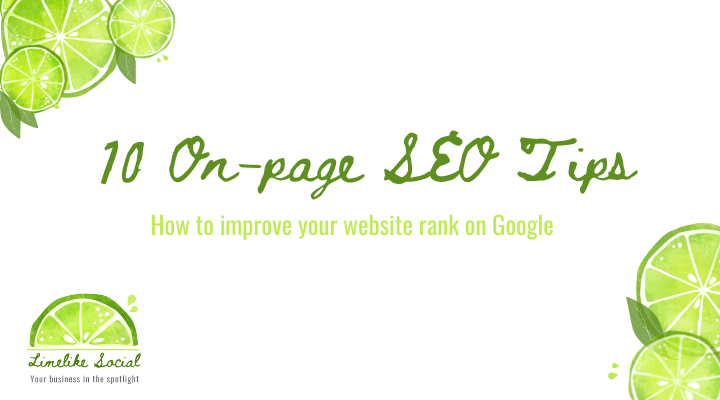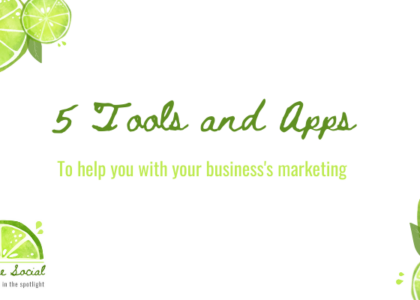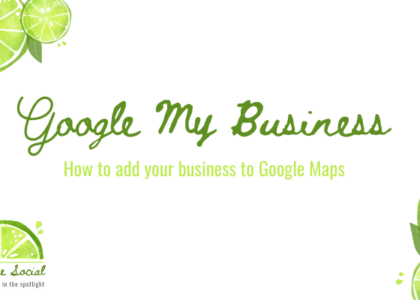SEO (Search engine optimisation) is a marketing process of improving the quality and quantity of website traffic to a website or a web page from search engines. On-page SEO is optimising individual web pages through content and technical changes in order to rank higher on Google. Here are our top 10 tips for your website SEO.
1) Include Images on Every Page
Images and videos can reduce bounce rate and increase users time on your site, which can improve rankings. Iimages allow you to include your targeted keywords in the image’s alt tag which improves page rankings.
2) Use Your Keyword Within the First 100 Words
Make sure your targeted keyword for each page features in the first 100 words of the copy, this will help improve your ranking.
3) Use Outbound Links
Link your website to other related outbound websites, it will improve your web authority to Google, associating your website with other quality websites can assist in page rankings and help Google better understand what your web page and site is about.
4) Use Inbound Links
Internal links can help page authority by linking to other important pages on your website. SEO Best practice calls for using keyword-rich anchor text, which helps users and Google understand what the page you’re linking to is about. An example of this is at the bottom of this blog, where we direct you to the Contact Us page.
5) Write Long-form Content
Longer content will help you rank better for your target keyword, but it will also allow for more longtail traffic opportunities. Long form content is anything above 800 words. Longer content tends to need more backlinks and therefore rank higher in organic search.
6) Optimise Meta Descriptions
Your meta description shouldcontain the target keyword for the page and be between 150-155 characters in length. It can be a small snippet from the start of your page introduction.
7) Use Social Sharing Buttons
Social media is great for getting more people to view your content and increases brand awareness. The more people who see and share your content on social media means more backlinks for the page are created, which improves the pages SEO.
8) Make Sure Your Site is Secure (HTTPS)
HTTPS is a secure way to transfer data between a server and a web browser. Google officially announced they would use HTTPs as a ranking signal in 2014. You can make your website into HTTPS by getting an SSL certificate and embedding it into the website. You can do this trhough your domain provider.
9) Spelling and Grammatical Errors
Webpages with spelling and grammatical errors can make it difficult for readers to understand the content. Google will notice spelling and grammatical errors and will negatively affect your search results.
10) Use SEO Friendly URLs
Your web page URL should be short and contain the pages keyword, at the beginning of the URL where possible. Avoid long URLs that have filler words or conjunctions such as ‘and’. Short URLs are proven to rank better in search results.
If you want to discuss your own website SEO plan or have us take a look at implementing the above tips get in touch, you can fill in the contact form on our contact us page, or email us at hello@limelikesocial.co.uk






